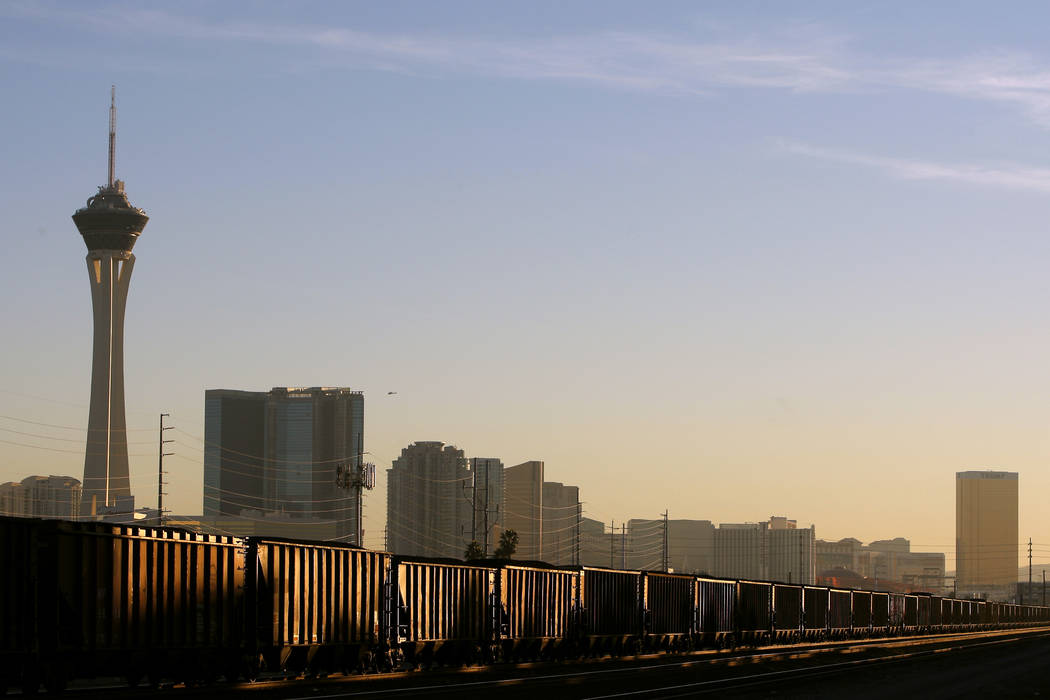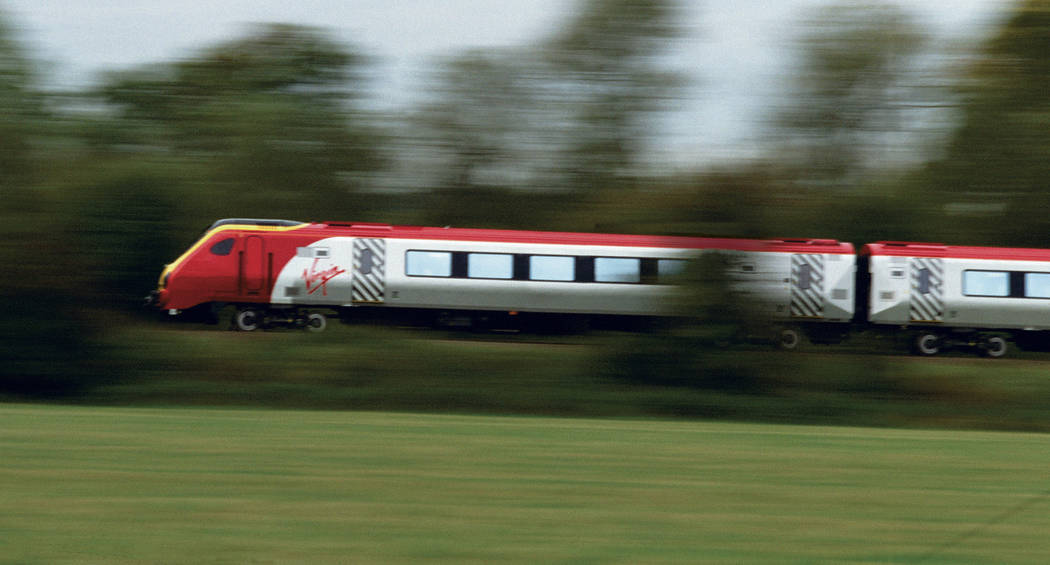Las Vegas officials eye linking downtown to proposed high-speed rail
A $7 billion high-speed rail line slated to connect Las Vegas and Southern California would have a sizable positive environmental impact on the region, according to Virgin Trains USA, the company behind the project.
Based on recent studies by its engineering team, Virgin Trains expects the planned rail project to remove at least 4.5 million cars off the widely used Interstate 15 corridor and reduce carbon emissions by 645 million pounds per year. Brightline, a Florida train company, received an investment from Richard Branson and his Virgin Group last year and is transitioning to the Virgin Trains USA brand.
Virgin Trains said last week the group is finalizing plans to connect Las Vegas and Victorville, California, with future routes envisioned.
Las Vegas officials also will look to tie in with the high-speed rail’s station to further reduce the number of vehicles clogging city roadways.
The city plans to commission a study looking at the feasibility of adding a rail connection to-and-from the proposed station to Downtown Las Vegas.
The current Virgin Train plan has the station slated to be constructed on 38 acres near the “resort corridor.” Craig Raborn, manager of planning for the Regional Transportation Commission of Southern Nevada, said a link to downtown would come via infrastructure already in place.
“What the City of Las Vegas is interested in is finding a way to use existing (Union Pacific Railroad) track to serve downtown,” Raborn said earlier this month at the RTC’s operations subcommittee meeting. “It wouldn’t be part of the Brightline, but it would be related to that, to try and get its service from downtown to that station.”
The city is set to carry out the study next year to investigate transportation routes and alternatives to connect the proposed Las Vegas high-speed train station to the downtown area.
“The study will look at what would it take to create some kind of connector from that location to allow their passengers to access downtown, the Bonneville Transit Center and the other pieces of the transportation that are in place downtown,” said Robert Summerfield, Las Vegas planning director. “Also, for any of their patrons who might stay downtown (they) would then be able to connect back to the train, to continue on back to California.”
The study is slated to begin in July 2020 and last until June 2021, costing $207,500. Funding would derive from a consolidated planning grant totaling $197,125 and a $10,375 local match.
Officials with the city have spoken with the high-speed rail team about the possible plan, Summerfield said.
In documents submitted to the U.S. Securities and Exchange Commission earlier this year, Virgin Trains stated it wants its Las Vegas station to serve as an intermodal hub with access to taxis, buses, ride shares, shuttles and limousines, so the rail idea would fall in line with that.
“We have actually had conversations with the group that is Brightline (Virgin) on how we would integrate whatever we would potentially do so it is a fairly seamless transition,” Summerfield said. “So it’s just like you get off a transit stop at the Bonneville Transit Center and connected from one more to a different mode to further your transportation.”
According to the SEC documents, Virgin Trains hoped to get construction of the rail line underway later this year with a targeted completion in 2023. The documents stated that varying factors could delay the project and the timeline was not firm.
Summerfield said the city’s project wouldn’t open in sequence with the proposed station. He also said the exact location of the proposed downtown station would be identified in the study.
“We would have to wait for the outcome of the study to determine how feasible it is and what that would look like financially and then begin to try and direct funding sources for whatever that might be,” Summerfield said. “We probably would not be moving in parallel with them, it would be something that we’re looking at as an adjunct to their effort.”
Contact Mick Akers at makers@reviewjournal.com or 702-387-2920. Follow @mickakers on Twitter.
























